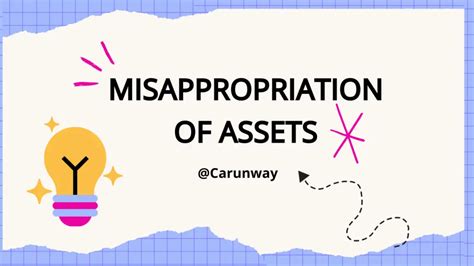Policy misapplication can have severe consequences for organizations, impacting their reputation, finances, and overall success. In today's fast-paced business environment, having effective policies in place is crucial for guiding decision-making, ensuring compliance, and mitigating risks. However, when policies are misapplied, it can lead to a range of negative outcomes. In this article, we will explore five ways policy misapplication can hurt organizations and discuss strategies for preventing these issues.
1. Inconsistent Decision-Making
Inconsistent decision-making is a common consequence of policy misapplication. When policies are not applied uniformly, it can lead to confusion, mistrust, and a lack of accountability. This can result in inconsistent treatment of employees, customers, or stakeholders, damaging the organization's reputation and eroding trust.

For instance, if a company's policy on employee conduct is not consistently enforced, it can lead to favoritism, discrimination, or unfair treatment. This can result in decreased morale, increased turnover, and even lawsuits.
Causes of Inconsistent Decision-Making
- Lack of clear policy guidelines
- Insufficient training for decision-makers
- Inadequate oversight and monitoring
- Failure to communicate policy changes or updates
2. Compliance Risks and Fines
Policy misapplication can also lead to compliance risks and fines. When organizations fail to adhere to relevant laws, regulations, or industry standards, they may face penalties, fines, or even legal action.

For example, a company that fails to comply with data protection regulations may face significant fines, reputational damage, and loss of customer trust.
Causes of Compliance Risks and Fines
- Lack of awareness of relevant laws and regulations
- Inadequate policy development and implementation
- Insufficient training for employees
- Failure to monitor and report compliance issues
3. Reputation Damage and Loss of Trust
Policy misapplication can damage an organization's reputation and erode trust with stakeholders, including customers, employees, and investors.

For instance, a company that fails to address concerns about its environmental impact may face public backlash, decreased sales, and damage to its brand reputation.
Causes of Reputation Damage and Loss of Trust
- Lack of transparency and accountability
- Failure to communicate policy changes or updates
- Inadequate stakeholder engagement and feedback
- Insufficient crisis management and response
4. Financial Losses and Reduced Productivity
Policy misapplication can also result in financial losses and reduced productivity. When policies are not applied effectively, it can lead to inefficiencies, waste, and decreased morale.

For example, a company that fails to implement effective procurement policies may experience increased costs, decreased quality, and reduced supplier reliability.
Causes of Financial Losses and Reduced Productivity
- Lack of clear policy guidelines and procedures
- Insufficient training for employees
- Inadequate monitoring and reporting
- Failure to address policy exceptions and deviations
5. Missed Opportunities and Innovation
Finally, policy misapplication can result in missed opportunities and innovation. When policies are not applied effectively, it can stifle creativity, entrepreneurship, and growth.

For instance, a company that fails to encourage innovation and experimentation may miss out on new business opportunities, products, and services.
Causes of Missed Opportunities and Innovation
- Lack of clear policy guidelines and procedures
- Insufficient training for employees
- Inadequate monitoring and reporting
- Failure to address policy exceptions and deviations






We hope this article has provided valuable insights into the consequences of policy misapplication and the importance of effective policy development, implementation, and monitoring. By understanding the causes of policy misapplication and taking steps to prevent it, organizations can mitigate risks, improve compliance, and achieve their goals.
What are the consequences of policy misapplication?
+Policy misapplication can lead to inconsistent decision-making, compliance risks and fines, reputation damage and loss of trust, financial losses and reduced productivity, and missed opportunities and innovation.
How can organizations prevent policy misapplication?
+Organizations can prevent policy misapplication by developing clear policy guidelines and procedures, providing sufficient training for employees, monitoring and reporting policy compliance, and addressing policy exceptions and deviations.
What are the benefits of effective policy implementation?
+Effective policy implementation can improve compliance, reduce risks, increase productivity, and enhance reputation and trust.
